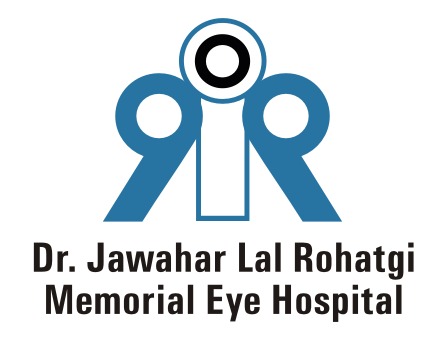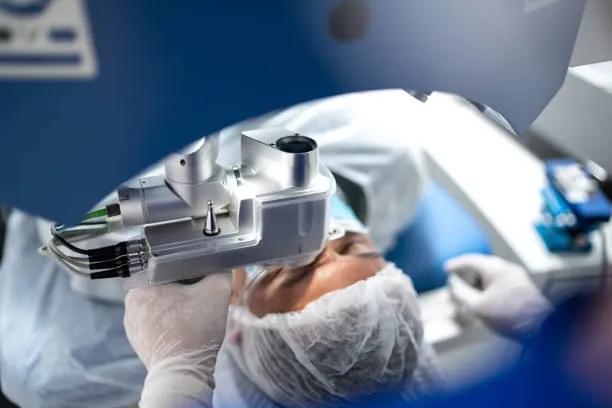LASIK is a successful eye surgery that enables an individual to view more clearly without wearing glasses. LASIK is not meant for everyone, though. Everyone wants LASIK, but not everyone can receive it. This blog replies to who can receive LASIK, who cannot, and why.
What Is LASIK Eye Surgery?
LASIK is short for Laser-Assisted in Situ Keratomileusis. LASIK is laser eye surgery. LASIK fixes near-sightedness, farsightedness, and astigmatism by reshaping the cornea.
The concept is that you will never again need to use glasses or contact lenses.
Why LASIK Isn’t for Everyone: Know the LASIK eye surgery criteria
LASIK is safe and also effective. There still exist some individuals, however, who cannot meet the LASIK eye surgery requirements. Your health or your general health isn’t okay if you aren’t perfect. Screening is therefore extremely vital due to this.
Age Matters for LASIK
You have to be an adult in order to get LASIK. You are typically required to be more than 18. Your eyes may still be developing before then. Physicians would want your eyes to stabilize prior to your getting LASIK. Stable vision is when your glasses or contact lens prescription has not altered in more than one year.
Your Eye Health is Important
Your vision should be sufficient enough to qualify you as a LASIK candidate. You won’t be safe enough for LASIK if you have certain eye illnesses. They are:
- Dry eyes: If your eyes don’t produce sufficient tears, LASIK would be a worse choice.
- Keratoconus: This is when the clear front surface of your eye (cornea) thins out and bulges forward into a cone shape. LASIK would be unsafe for you if this occurs.
- Glaucoma: Glaucoma is an eye disease which can damage your optic nerve. You can generally not have LASIK if you have glaucoma.
- Cataracts: They are cloudy areas on your lens in your eye. You cannot correct cataracts with LASIK. You will be scheduled for a different surgery.
- Eye infections: If you have an infection in your eye, you will have to wait until you are free of the infection completely before you do and have LASIK.
Your Overall Health Plays a Role
Your overall well-being has a role to play in LASIK. Certain health conditions will determine the way you recover from the treatment. Some of them are:
- Diabetes: The lack of controlled diabetes will impede healing.
- Autoimmune disease: Lupus or rheumatoid arthritis are only two of the numerous autoimmune conditions that will disrupt healing.
- Weakened immune system: If your immune system is not capable of fighting off infection, then LASIK isn’t worth the risk.
Inform your physician of any medical conditions. They will know if LASIK is right for you.
Your Vision Prescription Must Be Accurate
LASIK corrects most common vision problems, such as:
- Near-sightedness (myopia): Difficulty in seeing distant objects.
- Farsightedness (hyperopia): Trouble seeing close-up.
- Astigmatism: Distorted vision caused by a non-spherical shape of the cornea.
But there are several limits to LASIK. If your prescription is too great, LASIK won’t be able to make your eyes good enough so that they can see. Your physician will assess your prescription to determine if or when LASIK would be suitable for you. Your prescription has to be stable for one year before surgery.
Understanding the Risks and Complications
As it is with any other treatment, LASIK eye surgery also has risks. Having an idea of the risks beforehand and going for the procedure is a sensible choice. Complications and risks include:
- Dry eyes: It is one of the normal LASIK complications. It is bound to be temporary in most, but permanent in a few.
- Glare and halos: Halos or glare around objects or lights will be noticeable, particularly at night. This is usually improved in the long run.
- Under correction or overcorrection: LASIK is not always able to correct your vision completely sometimes. Some still use glasses or contacts.
- Astigmatism: LASIK can never be ideal for astigmatism in some individuals.
- Vision loss: Extremely rare and serious side effect.
- Infection: Like any surgery, there is a possibility of infection.
Discuss all the risks and complications with your surgeon. Get them before deciding to get or not get LASIK.
What If LASIK Isn’t Right for You?
Don’t freak out if you are not a good candidate for LASIK. There are numerous other ways of improving vision. Some of them are:
- PRK (Photorefractive Keratectomy): It’s laser eye surgery. It may be for people who have thin corneas.
- LASEK (Laser Epithelial Keratomileusis): It’s about the same as PRK.
- ICL (Implantable Collamer Lens): It’s an implant of a special lens in your eye. Perhaps it would be for a person with high prescriptions.
- Refractive Lens Exchange (RLE): It replaces your lens with an artificial lens. It is usually saved for people with extremely farsighted eyesight or early cataracts.
Ask your eye expert what is best for you.
Get Personalised Guidance
Our skilled eye specialists at Dr. Jawahar Lal Rohatgi Smarak Netra Chikitsalaya can diagnose your eyes and test your potential. We employ the latest technology in our quest to give you the utmost care for your eyes. Should you find yourself a candidate for LASIK or other vision refractive surgery, please by all means surf our website online, ask for further information, and even make an appointment. Our seasoned practitioners are ready to assist and give you the vision that we can provide. This blog is not a substitute for a doctor’s advice and is only being provided for informational purposes.





 Call Us Now
Call Us Now
Leave a Reply